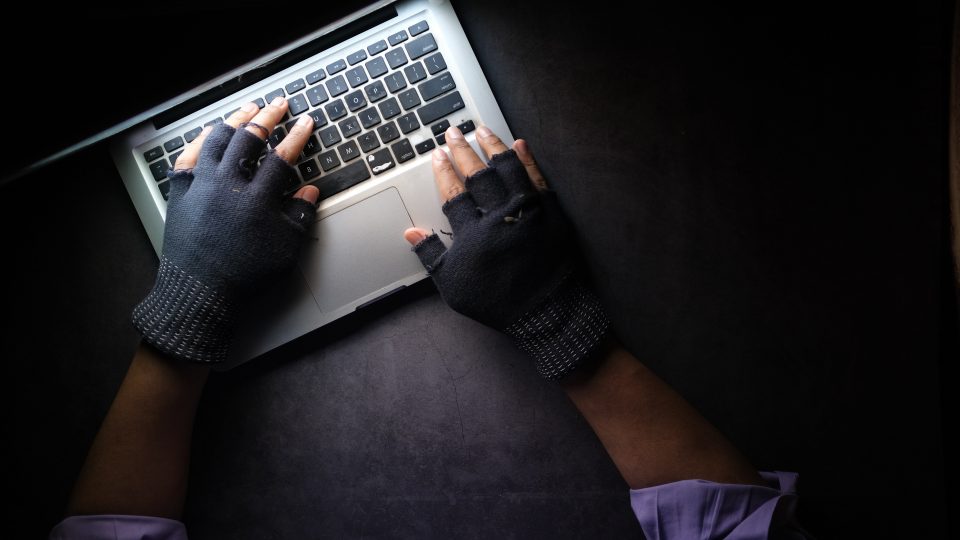Avoid Wallet Hacking & NFT Theft | Crypto Safety
When anything gains popularity and value, it sadly attracts wrongdoers and scammers. Attacks and theft are common, so we’ve laid out how you can protect your collection from being stolen.
NFT theft and wallet hacking is a very real danger when it comes to buying and collecting in the crypto space. At Fractis, we want you to enjoy building your NFT portfolio. That’s why we’ve gathered together some useful guidance, that should help you keep your digital assets safe and sound.
Ever been notified by the bank that there are some unusual transactions on your credit card? It’s a horrible feeling of confusion and panic. Fortunately, centralised banks are able to cancel transactions, trace cards, and take care of fraudulent activity. It’s not fun, but at least you’re well covered.
It’s a bit different in web3 and blockchain technology. Still somewhat of a wild west, there’s a lack of regulations or centralisation. This makes it more challenging to deal with wallet theft or hacking after the fact. However, according to experts and professionals in the field, there are ways you can protect yourself from becoming a victim of hacking in the first place.
The type of wallets you choose, and how you organise your tokens across them, is a major way to avoid hacking. First things first, though, what is a wallet?
NFT Wallets
You keep your banknotes in your physical wallet, and your digital money in a PayPal wallet. Well, crypto and NFTs need somewhere safe to be stored as well. That is referred to a wallet just the same.
To be more precise, a crypto wallet is a place for you to store your keys and passwords that let you access your crypto and NFTs. You also need a wallet to be able to send and receive crypto or NFTs.
There are various wallets that are better for certain things. Different types of wallets have differing levels of security and a range of capabilities. For example, some wallets are purely applications or browser extensions, and are permanently online. Others are physical hardware, and are not linked to the internet, which makes them less vulnerable to attack.
If you’re someone who tends to misplace things, a hardware wallet may not be a good idea. If you’re an avid trader who moves tokens around a lot, a hot wallet which is connected to the internet is perfect.
How to Dodge Wallet Hacking
Now you know what a wallet is and why you need one to own NFTs, here’s how you can protect them.
Co-founder and CEO of blockchain security firm CertiK, Ronghui Gu, explained to Cointelegraph that due diligence is imperative when guarding your wallet. Just like avoiding phishing scams via email or text, Gu advises people “avoid clicking on suspicious links and be very careful when signing token approvals”.
Further advice was offered, suggesting that a regular check of permissions, or a revoking of permissions is wise. Equally, spreading your NFTs across different wallets based on their purpose and the category they fall into can be a good security measure.
“Long-term holds should be kept in a secure wallet that interacts minimally, if at all, with applications. Hardware wallets have a somewhat steep learning curve, but the time investment is worth it.”
Ronghui Gu
Hardware wallets are often a safer option, but they are not without their risks. Michael Pierce, the CEO of Web3 security firm NotCommon explained that: “People should buy the hardware directly from the manufacturer to minimize any chance the wallet has been tampered with before the person receives it.”
Recovering Lost Assets
What happens if you do experience wallet hacking, and lose your NFTs? It’s a horrid thought, since some NFTs are bought up for millions of dollars worth of crypto.
Speaking about losing NFTs, Ronghui Gu explained that it’s unfortunate, but there isn’t much that can be done once NFTs are stolen. However, it’s important to inform marketplaces. Some marketplaces can blocklist certain NFTs, preventing them from being sold on or traded after being stolen.
By reporting fraudulent behaviour, the NFT community can become more educated and aware of the risks surrounding investing and trading.
Whilst there isn’t much regulation around NFTs, people remain vulnerable to attacks and theft. The best thing to do is to arm yourself with as much information as possible. This helps protect your wallet, so you can hang onto your precious NFTs.
If you’re a music fan, sign up to Fractis now!
Be the first in line to be part of a better music industry, whilst building an NFT portfolio.
